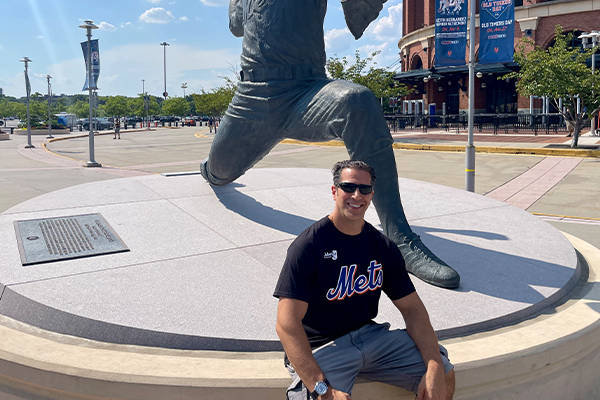The owner of a Poughkeepsie fencing company who recently filed for bankruptcy protection apparently had a side gig lining up investors for a Florida fraud.
Burton W. Wiand, a court-appointed receiver for Oasis International Group, a Longboat Key, Florida company that raised $84 million from nearly a thousand investors in a Ponzi scheme, sued Rocco Garbellano III Aug. 3 in U.S. Bankruptcy Court, Poughkeepsie. He is asking the court to block Garbellano from discharging a $350,000 court judgment that was levied in the Oasis case.

“Garbellano participated in and helped further an elaborate ruse to coax, cajole and obligate investors to Oasis International Group Limited,” Wiand alleges, “in order to defraud and deceive those investors while the operators of the Ponzi scheme ”“ and those who facilitated the scheme, like Garbellano ”“ lined their pockets.”
Garbellano”™s bankruptcy attorney, Anne J. Penachio, did not respond to an email request for her client”™s side of the story.
Garbellano owns Rocky”™s Fence Co., “the only local business you can trust for all of your fencing needs,” according to its website.
This past May he filed for personal Chapter 13 bankruptcy protection, the so-called wage earner”™s plan that allows debtors to repay all or part of their debts in installments spread out over a few years.
He declared $170,701 in assets and $538,067 in liabilities. The primary asset is a half-interest in his home. The primary liability is a $268,000 “potential” claim from the Oasis case that is characterized as disputed.
He attributed his financial situation to the impact of the Covid-19 pandemic on business and to a court judgment against him in an Oasis civil case in Tampa. He told a lawyer who interviewed him in 2020 in the Florida case that he had “little, if any, money in the bank and lived paycheck to paycheck,” according to the lawyer”™s affidavit.
Oasis was ostensibly set up to trade in the foreign exchange market, according to U.S. Department of Justice press releases, and investors were told they would receive at least 12% a year in returns.
But the company made few trades and instead used investor funds to pay for lavish lifestyles for the principal operators. Money from new investors was also used to pay previous investors, in classic Ponzi-style, to conceal the fraud and keep the scheme going.
One of the Oasis principals was Michael J. DaCorta, who Garbellano had known for 30 years, according to Wiand”™s bankruptcy complaint. Garbellano knew how the Oasis scheme worked, Wiand argues, because he had invested in previous schemes with DaCorta, worked as a salesman for him, and had lost money with him on a previous venture.
“Garbellano”™s sole purpose was to bring in new investors and new funds into Oasis,” the complaint states.
He refused to invest his own money in Oasis. DaCorta offered him a sales position that paid commissions, so that he could recoup previous losses. DeCorta also gave Garbellano the key to a New York home he abandoned when he moved to Florida.
“These details provided by Garbellano paint a picture of two people who have an enduring and well-established relationship,” the Wiand complaint states. “Garbellano knew of DaCorta”™s past failures and still chose to recruit, refer, and conscript investor-victims into the Ponzi scheme and accept $268,6793 to do so.”
This past May, a federal jury in Tampa found DaCorta guilty of criminal conspiracy to commit wire fraud, money laundering and filing a false income tax return. He is scheduled for sentencing this fall.
Meanwhile, Wiand had been authorized in the civil case against Oasis to recover funds for defrauded investors.
In 2020 a Tampa judge issued a $349,921 default judgment against Garbellano that includes the commissions plus interest from 2012 to 2019. He challenged the judgment, but before a hearing was to be held this past May 11, he petitioned for bankruptcy protection, automatically freezing the Tampa case.
Wiand argues that Garbellano”™s Oasis commissions resulted from false pretenses, false representation or actual fraud, and therefore may not be discharged in bankruptcy.
Garbellano made $41,112 last year, $41,005 in 2020 and $64,211 in 2019, according to a bankruptcy schedule. The petition does not show whether any of the declared income was from Oasis. According to the Oasis case in Tampa, he was paid $37,573 in 2019, the last year of the scheme.


















